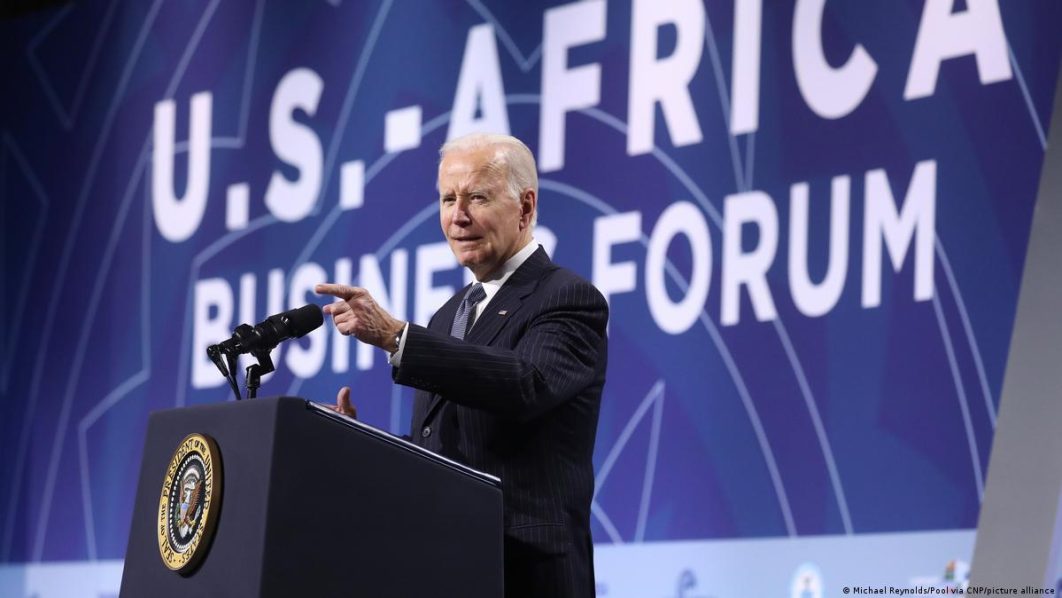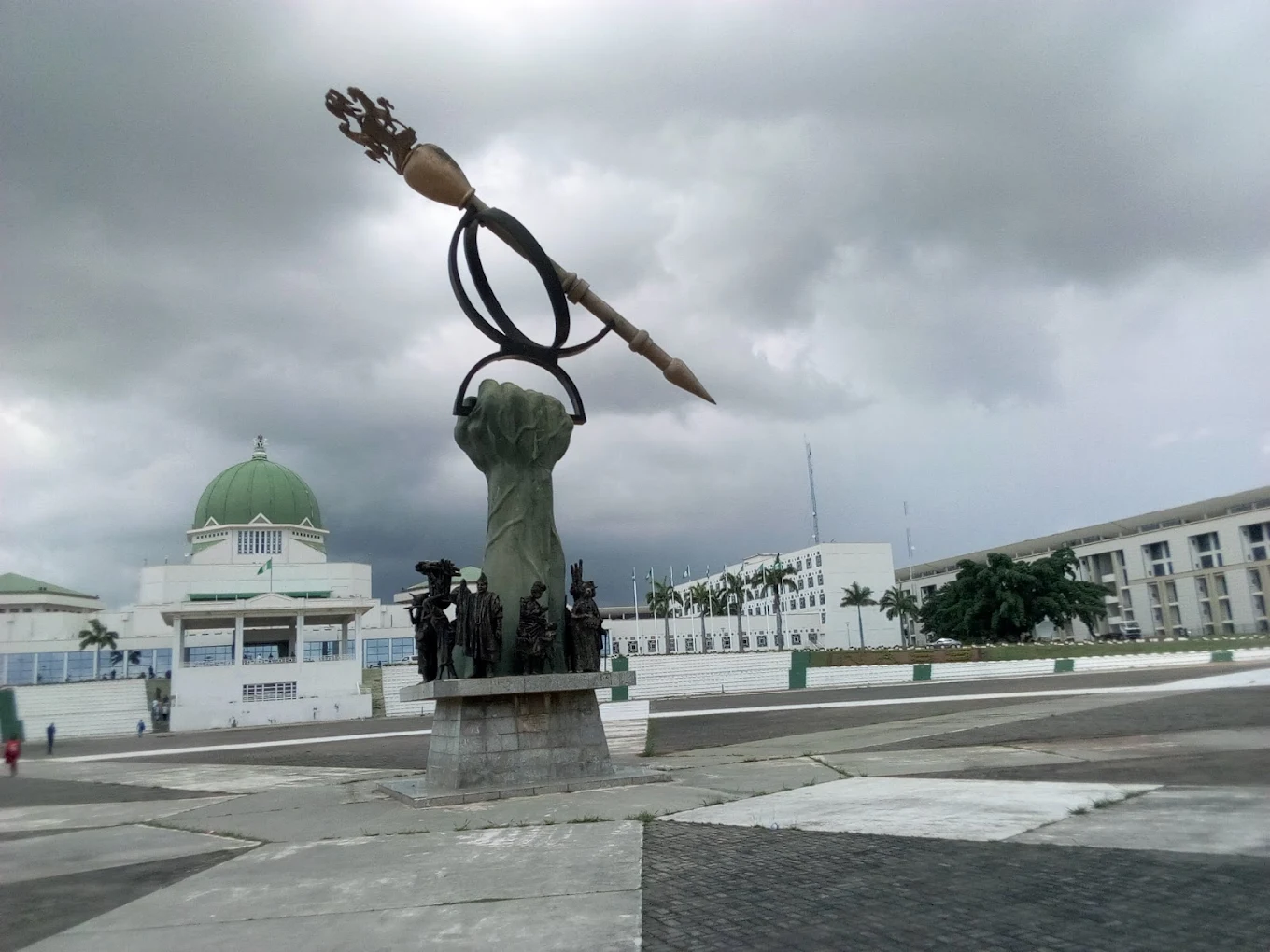 Notwithstanding an imperfect democracy, that the United States of America (USA) is, and aspires to be, through an iterative process of checks and balances; the application and enforcement of the rule of law, a robust bi-cameral legislature of different political shades; constitutionally guaranteed subsidiarity arrangements between federal, state and municipal government; regular congressional elections, an independent judiciary; fixed presidential term limits, open markets, a free press; the bastion of the free world, is incontestable.
Notwithstanding an imperfect democracy, that the United States of America (USA) is, and aspires to be, through an iterative process of checks and balances; the application and enforcement of the rule of law, a robust bi-cameral legislature of different political shades; constitutionally guaranteed subsidiarity arrangements between federal, state and municipal government; regular congressional elections, an independent judiciary; fixed presidential term limits, open markets, a free press; the bastion of the free world, is incontestable.
The principles reinforcing that thesis are enunciated in the Preamble to the 1787 United States Constitution. It affirms that the people of the United States, in order to form a more perfect union, establish Justice, ensure domestic tranquillity, provide for the common defence, promote the general Welfare, and secure the Blessings of Liberty to ourselves and our Posterity, do ordain and establish this Constitution for the United States of America.
Article 1 section 8 of the Constitution, empowers Congress to regulate commerce with foreign states, whilst Article III section 2, confers US courts the right to adjudicate in disputes involving the US, emanations of the latter and foreign states.
The corollary emanating from the foregoing, relative to foreign relations, is clear; the US will be more likely than not, to engage meaningfully, strategically and otherwise, with nations possessing genuine democratic legitimacy, reinforced by justice and the rule of law, committed to the people’s welfare and free enterprise.
Although these propositions are anchored in the philosophical underpinnings of the US constitution, and politicians of whatever hue barely derogate from them, they are counterbalanced and/or circumscribed by America’s national/geopolitical interests, which negate any encapsulating singular definition. Those interests include enhancing domestic security, safeguarding international cooperation, global free trade, enterprise and liberty. It extends to enforcing the rule of law globally, technological innovation, outperforming advances in scientific research and development like the first COVI-19 vaccine (which saved millions of lives around the world!); defence, reinforcing an international financial order and much more.
Be that as it may, the economic and national interest rationale for America’s re-engagement with select African countries, including under the auspices of the United States – African Leaders’ Summit, December 13-15, 2022, heralds the purview of this article. Hosted by United States President Joe Biden, it was attended by 49 African leaders plus, the head of the African Union Commission. The explicit objective was to rebuild and strengthen relations between the United States and African countries focussing on issues pertaining to climate change, food sustainability, health, security, space cooperation and trade. A reasonable inference to draw is that this was aimed at regaining the strategic initiative on the continent whilst attempting to counter external threats from further afield.
Why is the re-engagement now? How sustainable is this renewed commitment? Is Africa genuinely America’s priority? What is the strategic quid pro quo? Do the economics work? Are the United States’ substantive military alliances effective in halting insurgency, terrorism and its serpentine financial ecosystem? These are colossal and interwoven questions.
For a start, it would appear that the US has for long taken its eye off the ball, relative to deeper and more constructive engagement with Africa. Scholarly opinion is split as to whether that phenomenon, was strategically intentional or worse, a failure of enduring strategic engagement. Either way, the chasm in proactive engagement with Africa, at scale, created opportunities for China and Russia to make significant in roads.
China, for example, is Africa’s major trading partner, the largest bilateral creditor and a critical source of infrastructure debt and mezzanine financing. The Economist estimates that Chinese firms account for one eighth of Africa’s industrial output whilst Chinese developed digital infrastructure underpins the platforms on which Africans communicate. Progressively, African nations are focusing their economic relationships on China and are conceiving the latter as a more enticing economic and political model. China for instance, unlike the US, operates a policy of non-interference in the political affairs of African states and offers more favourable loan terms for infrastructure development. Prevailing US philosophical orthodoxy, enunciated in the Constitution emphasise liberty, justice, freedom, free markets and welfare.
Accordingly, it would negate ideologically pure American constitutional doctrines and national interest to ignore significant injustice anywhere in world and neither act nor speak out. But then again, contradiction, is a key arsenal in domestic and international affairs, and indeed national security matters. It is often deployed to confuse, surprise and defeat your opponents. The United States is no exception here. A case in point is America’s policy of strategic neutrality on whether it would intervene militarily if China ever invaded Taiwan! This keeps China guessing on what the United States’ position would be. A nuanced application of game theory? Perhaps!
Still on China and Africa; the 2020 Statistical Bulletin of Foreign Direct Investment in China affirms that the latter invested USD43.39 billion in Africa. Resource-rich African countries with an overwhelming proportion of Chinese FDIs were South Africa (13%); Democratic Republic of Congo (9%); Zambia (7%), Ethiopia (7%); Angola (7%); Nigeria (6%) and Kenya (5%). The material point here is that Chinese influence is phenomenal and widening.
The unintended consequence of over 600 million people in Africa lacking access to electricity instantly creates market opportunities for investors. And Russia’s no exception. Several Russian firms including Gazprom, Lukoil, Rostec and Rosatom are well established and active in Africa. Africa’s first nuclear plant, El Dabaa, Egypt, is being developed by Russia and is due for completion in 2026.
Furthermore, the Wagner Group, a pro-Russian private military company, is also active in Africa. The Group has been active in military operations in Sudan, the Central African Republic, Madagascar, Libya, Mozambique, Swaziland (now Eswatini), Lesotho, Botswana and elsewhere in Africa.
To thicken the plot, the realpolitik of the Russian vs Ukraine conflict has opened up the de facto materiality of a multi-polar, as contradistinguished from a unipolar, world. Multipolar because, the USA and Russia, on opposite sides of the conflict, are both permanent members of the UN Security Council and are nuclear weapons super-powers. And the reference to the possession of nuclear defence capabilities is intentional here because the Russian President, Vladimir Putin, has consistently expressed his country’s willingness to deploy them if any country launches the same against his country.
In extremely chilling exchanges with the Russian Human Rights Council in December 2022, he opined: “Nevertheless, we have a strategy… namely, as a defence, we consider weapons of mass destruction, nuclear weapons – it is all based around the so-called retaliatory strike…That is, when we are struck, we strike in response.” Oh yes! It is that serious!!
So what? Three points flow from this. First, the imperative to end the conflict diplomatically is heightened, not diminished by the UN and progressive nations not least given the scale of the human catastrophe and displacement especially on the Ukrainian side. Second, America’s determination to rebuilding alliances with democratically credible Africa nations through the extant charm offensive of the recent US-Africa Summit reflects an important strategic calculation to reset its geopolitics on the continent. Third, is the inestimable potency of economic power and influence. The latter, for instance, opens up opportunities for greater access to US markets, scalable American investments, technological participation and collaboration on multiple frontiers.
The key question then is whether the United States of America is merely playing catch up in the nuanced zero-sum game of securing broader and deeper influence in Africa? The answer to that poser would often diverge depending on whether the response emanates from Atlanticists, pro-Europeans and advocates of a uni-polar world order, or from advocates of a multi-polar world order and non-aligned ideological pragmatists. That notwithstanding, America’s economic footprints in Africa are significant and increasing – a very welcome development.
Adopting Nigeria as a proxy for Africa for a moment, the United States is the largest foreign investor with US Foreign Direct Investment concentrated largely in the petroleum/mining and wholesale trade sectors. At USD 3.2 billion in 2019, Nigeria was the second largest United States export destination in Sub-Saharan Africa. In 2020, United States exported USD4.49 billion to Nigeria. The main US export products to Nigeria were cars (USD2.24billion); wheat (USD 312 million); and refined petroleum (USD 209 million). In the last 25 years to 2020, the exports of United States to Nigeria increased at an annualized rate of 8.42%, from USD 595 million in 1995 to the aforementioned USD 4.49 billion in 2020. Within the same period in 2020, Nigeria exported USD1.69 billion to United States. The main products that Nigeria exported to United States were crude petroleum (USD 1.19 billion); petroleum gas (USD 204 million); and refined petroleum (USD 169 million).Within the last 25 years to 2020, Nigeria’s exports to United States have decreased at an annualized rate of 3.68%, from $4.31 billion in 1995 to $1.69 billion in 2020.
More is being accomplished in economics. Visa, for example, recently announced a USD1 billion investment over five years, through 2027, in Nigeria and other African countries. The investment aims to support innovative technologies, digital commerce, fintechs, and mobile network operators, deepen compacts with financial institutions and governments whilst catalysing financial ecosystems. Equally, US firms including Boston Consulting group, Chevron, ExxonMobil, IBM, Google, McKinsey, Microsoft, Oracle, Procter and Gamble have significant footprints in the country.
On the defence front, transnational security threats, whether of the ISIS, Boko Haram, Sudanese Janjaweed terrorist ilk, have informed a reset of US engagement with Africa too. For example, Benin, Cameroon, Chad, Egypt, Morocco, Nigeria, Tunisia, United States et al are critical members of the Defeat ISIS (D-ISIS) coalition. Equally, within the maritime domain, United States Naval Forces Europe and Africa have established the Africa Partnership Station (APS).
The objective of APS is to improve capabilities with allied naval forces adopting four key principles to enhance maritime safety and security. One, is to develop maritime domain awareness by maintaining a crystal-clear picture of the maritime environment. Two, is to develop maritime professionalism. Three, is to establish robust maritime infrastructure. And four, is to develop effective and nimble response capabilities whilst building regional security integration.
Summing up, the quasi-scramble for African influence by the super powers United States, China, Russia et al is real and present. Could the United States do more? Most certainly. Reactivating and recalibrating the potential of the African Growth and Opportunity Act (AGOA), embedding strategic economic alliances, military pacts and realpolitik leverage are part and parcel of the battle not just for hearts and minds, but for resources, power and influence.
Here, the captivating words of former Secretary of State, Henry Kissinger, in Leadership (2022) strike a major chord – “any society, whatever its political system, is perpetually in transit between a past that forms its memory and a vision of the future that inspires evolution”
The question then is who wins and how will this evolution play out between the United States in Africa vs Russia/China in Africa whilst benefitting the people? Only time will tell!
Ojumu is Principal Partner at Balliol Myers LP, a firm of legal practitioners in Lagos, Nigeria.






